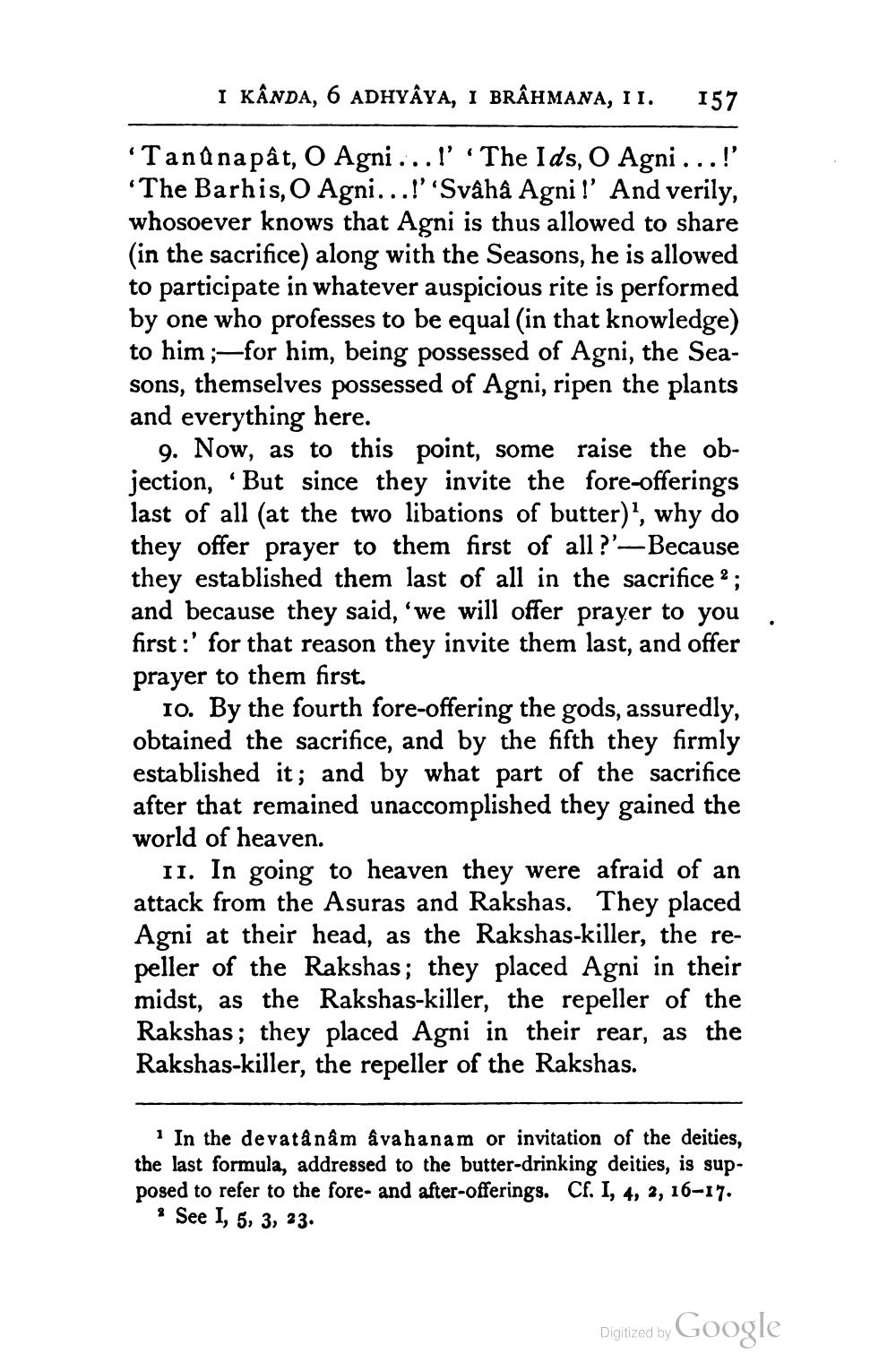________________
I KÂNDA, 6 ADHYÂYA, I BRÂHMANA, II.
157
"Tanů napât, О Agni...!' The Ids, O Agni ...!' •The Barhis, O Agni...!''Svâhà Agni!' And verily, whosoever knows that Agni is thus allowed to share (in the sacrifice) along with the Seasons, he is allowed to participate in whatever auspicious rite is performed by one who professes to be equal (in that knowledge) to him ;—for him, being possessed of Agni, the Seasons, themselves possessed of Agni, ripen the plants and everything here.
9. Now, as to this point, some raise the objection, 'But since they invite the fore-offerings last of all (at the two libations of butter)', why do they offer prayer to them first of all ?'— Because they established them last of all in the sacrifice 2; and because they said, 'we will offer prayer to you first:' for that reason they invite them last, and offer prayer to them first.
10. By the fourth fore-offering the gods, assuredly, obtained the sacrifice, and by the fifth they firmly established it; and by what part of the sacrifice after that remained unaccomplished they gained the world of heaven.
11. In going to heaven they were afraid of an attack from the Asuras and Rakshas. They placed Agni at their head, as the Rakshas-killer, the repeller of the Rakshas; they placed Agni in their midst, as the Rakshas-killer, the repeller of the Rakshas; they placed Agni in their rear, as the Rakshas-killer, the repeller of the Rakshas.
1 In the devatånâm âva hanam or invitation of the deities, the last formula, addressed to the butter-drinking deities, is supposed to refer to the fore- and after-offerings. Cf. I, 4, 2, 16-17.
? See I, 5, 3, 23.
Digitized by Google




